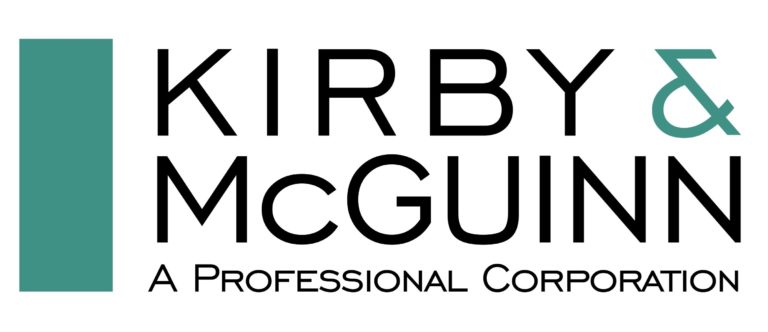California’s current legislative session has just gotten under way, and coming soon will be a bill to amend Article 9 of the Uniform Commercial Code, which governs security interests in personal property. This package of amendments was promulgated by the Uniform Law Commission (ULC) in 2010. For the most part it consists of technical fine-tuning, with one important and controversial, exception. This has to do with how to list the name of an individual debtor on a form UCC-1 Financing Statement.
Presently, Article 9 provides that in order to perfect a security interest in the personal property of a “registered organization” such as a corporation, limited partnership, or limited liability company, a financing statement must state the name “indicated on the public record of the debtor’s jurisdiction of organization.” (UCC section 9-503(a)(1)). This is a bright line rule. The only way that you can be certain that the name you place on the UCC-1 is sufficient to perfect is to have in your possession a certified copy of the current certificate of organization obtained from the state in which the debtor is organized. It may be the standard of practice for lawyers to rely on a copy of a debtor’s articles of incorporation and then to verify the name of debtor corporation, LP or LLC by consulting the Secretary of State’s online “Business Search.”
As to individual debtors, UCC section 9-503(a)(4) refers obliquely to an “individual name.” Section 506 states that even a financing statement which does not contain the “correct name” will be sufficient if it turns up in a search conducted under that “correct name.” The terms “correct name” and “individual name” are undefined in the UCC. Determining a person’s correct name is in many cases not easy. Many debtors exclusively use a first name that is not the one on their birth certificate. This practice is sometimes adopted by individuals with foreign names having long or unfamiliar spellings. In the case of Oriental names, there may be some misunderstanding as to which name is the correct “first name.” In the case of Hispanic names, there may appear to be more than one “last name.” Women may choose to adopt a married name, or a hyphenated last name, by changing one or more public records like a driver’s license or social security card. In the course of a divorce, a woman’s maiden name is often restored by court order. And so on. Unlike corporations, there is no central record which we can consult to give us definitively an individual’s “correct name.”
These factors result in more perfection mistakes where individual debtors are involved. The intractable nature of the problem created a rare situation in which the ULC failed to arrive at a preferred uniform solution. As result, the 2010 article 9 amendments contain two alternative provisions – creatively dubbed “Alternative A” and Alternative B.”
Alternative A is an “only-if” rule similar to the rule for corporations described above. To perfect, UCC-1 must set forth the name on the debtor’s driver’s unexpired driver’s license. As to individuals without a driver’s license, the UCC-1 must contain the individual name of the debtor (i.e., whatever the debtor’s name is under current law) or the debtor’s “surname and first personal name.”
Alternative B is a “safe harbor” rule, which retains the reference to the debtor’s “individual name,” but specifically provides that using the name on the driver’s license (or the debtor’s surname and first personal name) will result in perfection
Common sense suggests that Alternative B is the better solution. Under Alternative B, you can be assured of “safe harbor” perfection if you use the driver’s license, but if you (or your client) didn’t use it you still have a chance at being perfected. Alternative B favors perfection for the imperfect among us, e.g., real estate and business brokers and lay users of the UCC. Alternative B also gives more of a chance to those imposing an involuntary lien (such as judgment creditors or the state taxing authorities) who don’t have a copy of their target’s driver’s license when filing. As a lawyer, how many times have you had to file a financing statement to perfect a lien where the client neglected in the first instance to do so? Did the client have copy of the borrower’s driver’s license handy?
Unfortunately, there is no lobby for common sense and the American Bankers Association has been successfully lobbying for Alternative A. See their position paper here. The reasoning is that use of the exact name appearing on the driver’s license will simplify the searching that their loan departments are required to do. This goal is in fact unlikely to be achieved, because tax liens will play by different rules.
When you think about it, Alternative A is a legislative sanction for lenders to cut corners and not conduct searches which would have otherwise disclosed tax liens and judgment liens. Do lenders really not care that their prospective borrowers are subject to tax liens and unsatisfied judgments? Do bankers think that incorrectly filling out financing statements is something that only other lenders do?
Due in great part to this wrongheaded position by the American Bankers Association, Alternative A has been the overwhelming choice of state legislatures so far. Thirty states have adopted the 2010 Article 9 amendments. Of those all but five adopted Alternative A. However, the bill has not yet been introduced in New York and California, and has not yet passed in Delaware. I don’t hold out a great deal of hope for Alternative B, and for lawyers the lesson is clear. Don’t ever file a UCC-1 as to an individual without a copy of the driver’s license in your file, assuming one is available.
